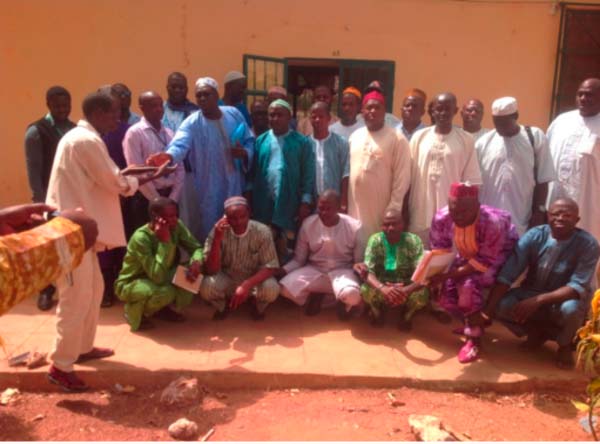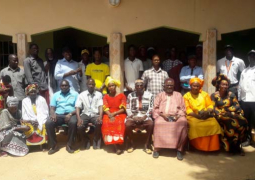
Governor Puye said diversification of agriculture should be considered, while citing that voluntary guidelines could contribute to strengthening access and security of tenure of smallholders in developing countries, in general, and West Africa, in particular.
The LRR Governor was speaking during the recent opening ceremony for a sensitization and awareness-creation session for National Assembly members on the Voluntary Guidelines Land Tenure System, organised by NACOFAG in partnership with the National Farmers Platform, at the Rural Development Institute in Pakalinding.
He said the Voluntary Guidelines Dissemination Project was conceived to build on the results of the application of the Land Governance Assessment Framework (LGAF), and would focus on improving the livelihood of small-scale producers through the inclusion of principles of the voluntary guidelines on the responsible governance of land tenure, fisheries and forests into policy and practice.
These activities would be conducted in four West African countries that share several similarities and display a readiness and favourable conditions for change in land issues, he said.
“The overall goal of the project is to strengthen access and security of tenure of smallholders in selected West African countries, by promoting and mainstreaming the principles of VGs at the appropriate levels,” he added.
The project would give special attention to the situation of women and youth, he continued, adding that not only would these groups be well represented in different meetings, but “all activities and the expected results would go a long way in achieving the ultimate goals of the project”.
There is no doubt that the principles of the Voluntary Guidelines could contribute to strengthening access and security of tenure of smallholders in developing countries, in general, and in West Africa, in particular, Governor Puye went on.
He said a precondition is the inclusion of the recommendations of the guidelines into country policies and practices.
To this end, he said, raising awareness of key stakeholders of the policy process is a prerequisite to implementation.
Hon. Bafaye Saidykhan, NAM for Jarra East and the Vice Chairman of Select Committee on Agriculture, said National Assembly members should be involved in implementing policy documents, as they are representing their constituency and they should sensitize their members.
He said agriculture is the backbone of The Gambia, and when it is affected all of them would be affected and the Vision 2016 is their national policy to attain and meet its targets.
The president of National Farmers Platform, Alhaji Basse Mboge, said all key partners could use the VGs to contribute to policy dialogue platforms in order to improve the land tenure situation of smallholders and the vulnerable groups.
These groups would support and facilitate the implementation of land tenure assessment and action plans at country level, which include concrete measures.
He added that the President of The Gambia has been working in harmony with farmers’ organizations in all forms through the Ministry of Agriculture.
This has been manifested by the platform during the two farmer conferences held in Janjanbureh and Farafenni organised by the Farmers’ Platform with support from the Ministry of Agriculture.
The FAO plays a key role in spearheading the establishment of voluntary guidelines, and this has been recognised by Gambian farmers and the Gambia government, he said.




